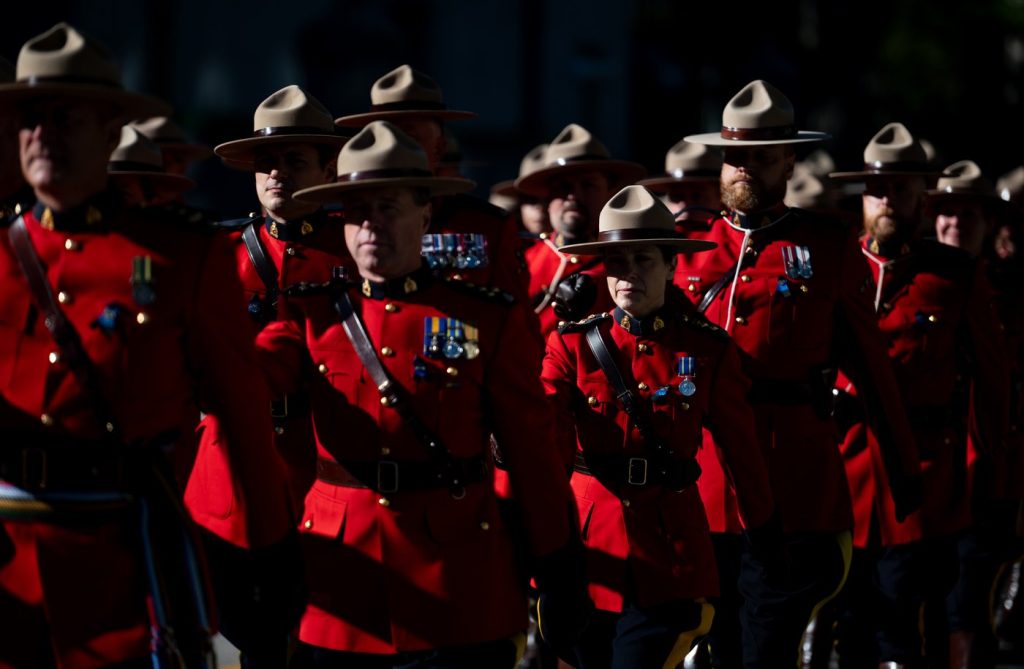OTTAWA — The union representing front-line members of the Royal Canadian Mounted Police (RCMP) has proposed that the force relax its criteria for foreign applicants in a bid to attract experienced police officers from countries such as the United States, the United Kingdom, and Australia. Currently, the RCMP mandates that applicants must either be Canadian citizens or permanent residents who have resided in Canada for at least three of the last five years.
The National Police Federation (NPF) highlights that the RCMP should consider following the example set by the Canadian Armed Forces, which in 2022 opened its applications to permanent residents without imposing any requirement regarding their duration of residency in Canada. The federation’s president, Brian Sauvé, expressed optimism about the potential to attract quality talent by adopting a similar approach for the RCMP.
Sauvé likens this suggestion to federal immigration programs designed to recruit skilled workers to Canada. He stated, "If this government has identified public safety, border security, and all that stuff as an imperative, we can do the same thing, right?" He emphasized that the RCMP possesses equivalency training programs, allowing applicants from jurisdictions like Manchester or New South Wales, or even from the FBI, to receive necessary training to qualify for positions within the force.
The proposal emerged from a broader set of recommendations put forth by the police federation in a June report aimed at revamping the RCMP’s recruitment practices, funding model, training programs, and procurement processes. The federation pointed out that independent evaluations over the past two decades have provided the federal government with clear directives on enhancing RCMP operations, but these recommendations have often met with little action or follow-through.
According to the report, the slow federal procurement process is a significant obstacle, hindering the timely acquisition of essential equipment like service pistols, body armor, and body-worn cameras, which is crucial for both officer safety and public trust. The federation is advocating for a streamlined and modernized application processing system for the RCMP, an increase in training capacity, and a substantial raise in the training allowance for cadets, pushing to increase it from the current $525 per week to around $1,200.
Moreover, the federation wants more flexibility for new recruits, especially for candidates from other law enforcement agencies. Currently, the RCMP’s experienced police officer program, which only accepts active or recently inactive officers, excludes many well-trained public safety personnel like Canada Border Services Agency members and provincial sheriffs. This limitation compels these candidates to undergo a full 26-week training regimen at the RCMP training depot, presenting unnecessary barriers to recruitment and resulting in missed opportunities to bring skilled individuals into the force.
During the recent spring election campaign, the Liberal government pledged to recruit an additional 1,000 RCMP personnel to combat pressing issues such as drug and human trafficking, cybersecurity threats, and organized crime. The government also promised to establish a new RCMP academy in Regina and increase compensation for cadet recruits, efforts which Public Safety Canada spokesperson Max Watson acknowledged as crucial steps in supporting recruitment and retention.
The federation is also addressing the ongoing discussions regarding the RCMP's role in contract policing. Some critics have suggested that the force should transition to focus solely on federal policing matters, akin to the FBI model. However, the federation strongly opposes this notion, arguing that the RCMP’s integrated pan-Canadian policing model is one of its strengths in providing consistent and efficient policing across jurisdictions. The federation warns that discontinuing this model would create significant service gaps and public safety issues, emphasizing the need for dedicated federal funding for federal policing without compromising contract jurisdiction responsibilities.
Overall, while there are calls for reforms and adaptations within the RCMP to meet contemporary challenges, the federation remains hopeful for the government's commitment to enhancing law enforcement capabilities. The RCMP continues to provide vital policing services across Canada, except in Ontario and Quebec, serving rural areas, the North, and various municipalities under contractual agreements.











